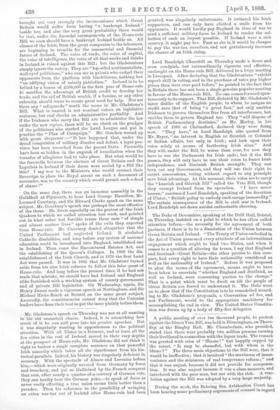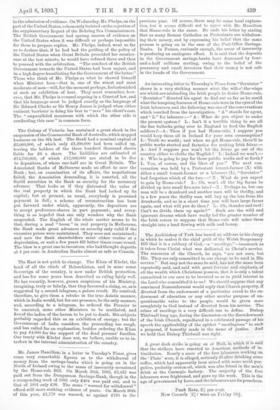During the week, the Behring Sea Arbitration Court has been
hearing some preliminary arguments of counsel in regard to the admission of evidence. On Wednesday, Mr. Phelps, on the part of the United States, vehemently insisted on the rejection of the supplementary Report of the Behring Sea Commissioners. The British Government had sprung masses of evidence on the United States when it was difficult or perhaps impossible for them to prepare replies. Mr. Phelps, indeed, went so far as to declare that, if he had had the guiding of the policy of the United States when Great Britain presented her counter- case at the last minute, he would have refused there and then to proceed with the arbitration. "The conduct of the British Government towards the United States had been unjust, and in a high degree humiliating for the Government of the latter." Those who think of Mr. Phelps as what he showed himself when Minister here—that is, one of the wisest and most moderate of men—will, for the moment perhaps, feel astonished at such an exhibition of beat. They must remember, how- ever, that Mr. Phelps is counsel arguing in a Court of law, and that his language must be judged exactly as the language of Sir Edward Clarke or Sir Henry James is judged when either eminent barrister is doing his best to " save " his client's ease. The " unparalleled meanness with which the other side is conducting this case " is common form.



































 Previous page
Previous page